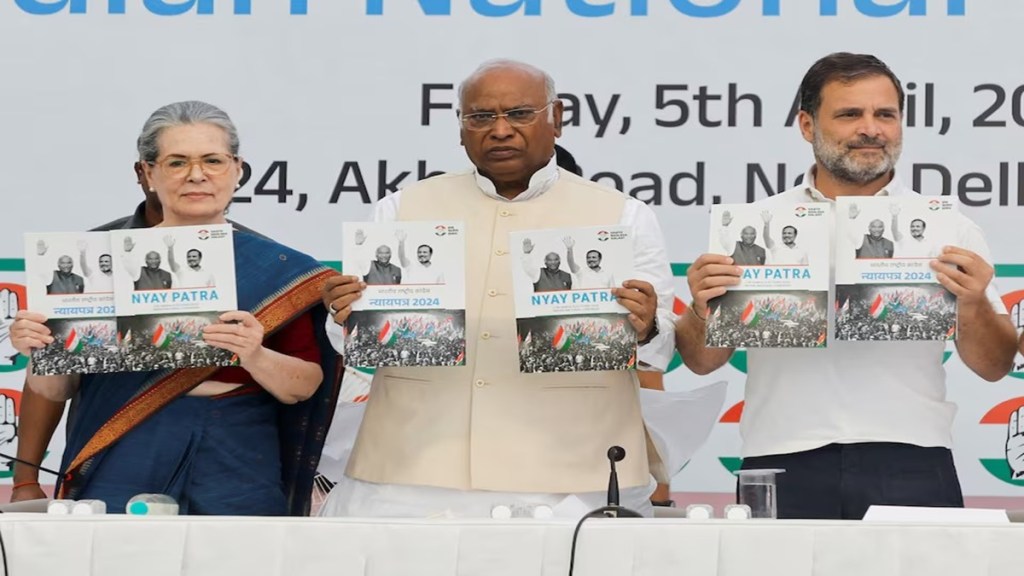The Congress party in its 2024 Lok Sabha election manifesto on Friday proposed tax relief to micro, small and medium enterprises. The party said it would lessen the burden of tax on MSMEs owned by individuals and partnership firms. Moreover, shopkeepers and small retail businesses that face intense competition from online businesses will be given significant tax relief, the manifesto read.
It also said that “Angel Tax” and all other “exploitative tax schemes that inhibit investment in new micro, small companies and innovative start-ups” will be eliminated if it comes to power.
“Congress will replace the GST laws enacted by the BJP/NDA government with GST 2.0. The new GST regime will be based on the universally accepted principle that GST shall be a single, moderate rate (with a few exceptions) that will not burden the poor,” the party said.
Among the measures suggested by the party to make India a manufacturing hub, the party said it will give the highest priority to intellectual property rights and to the registration, acquisition, protection and use of IPR in small, medium and large businesses.
Further, it promised that it would create thousands of jobs. “The best creator of jobs is the private sector. In particular, the MSME sector is the creator of the largest number of jobs, especially for workers with average education and average skills,” the manifesto read.
“We will remove the current environment of distrust and fear, and create a healthy eco-system where private enterprises, regulatory authorities, tax authorities and government will work in a spirit of mutual cooperation and respect.”
Particularly for startups, the party said will restructure the Fund of Funds Scheme for startups and allocate 50 per cent of the available fund, as far as possible equally among all districts, for providing funds to youth below 40 years of age to start their own businesses and generate employment.
The Fund of Funds for Startups (FFS) scheme under the Startup India programme was launched by Prime Minister Narendra Modi in January 2016. The scheme has enabled investments to the tune of around 4x of the amount drawn with Rs 17,534 crore invested in 938 startups, according to a Crisil assessment called Prabhaav launched by SIDBI in February.


